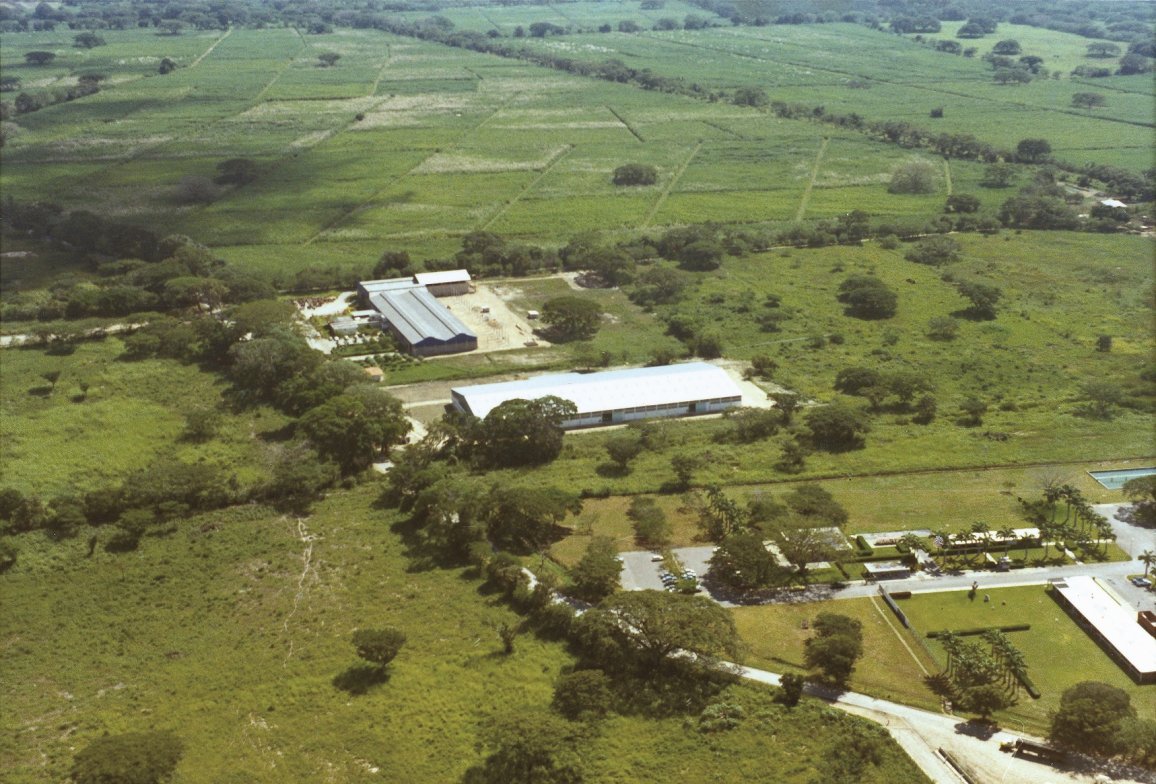The history of ALPLA: Going out into the world
To be an entrepreneur, you have to have the courage to leave your personal comfort zone – and to do so again and again. Alwin Lehner had exactly that courage and successfully broadened ALPLA’s horizons.
After ALPLA had established its second plant in Austria in 1962, the country gradually began to feel a little small for the company. The logical step for the relatively new enterprise was therefore to expand into neighbouring Germany: in 1964, ALPLA established a new site in Markdorf on the German side of Lake Constance. The premises initially used were four simple wooden buildings that once served as a knitting machine factory. This plant not only processed the German customers’ orders, but was soon also handling inquiries from all of the countries of what was then the European Economic Community (EEC). ALPLA’s growth thus began to gather pace.
Venezuela – ¿por qué no?
This was then followed by the boldest step that Alwin Lehner ever took in developing the company – its expansion to Venezuela. But why was the decision taken so early in the company’s development to go to such a far-flung country? According to Alwin Lehner’s biography, it was actually down to a series of fortunate coincidences, rather than strategic calculation.
In 1968, an ALPLA technician was perusing the job ads in the FAZ newspaper and came across an ad placed by a Venezuelan plastics manufacturer. The company in the form of the former Austrian owner Karl Schmeichler, or ‘Don Carlos’, asked the job applicant for some references. The technician’s reply caught Schmeichler’s curiosity and ultimately prompted him to pay a visit to the ALPLA plant in Hard. Seriously impressed by the technical standards and the vertical integration there, he invited Alwin Lehner to Venezuela – in the hope of being able to use the expertise in Hard to help his ailing business. Alwin Lehner accepted his invitation and very quickly demonstrated that he was a true pioneer of plastics technology by successfully repairing a seemingly defunct piece of machinery. The business’s future was then sealed with a handshake shortly after at Caracas Airport – ALPLA would provide more expertise and machinery. In return, initially a 70 per cent stake in the South American company was granted and, eventually, the entire plant. The newly acquired foothold soon acquired valuable customers and increased in stability. Within just a few years, it was not only turning a profit, but also already accounted for a third of ALPLA’s turnover.

ALPLA’s plant in San Joaquín, Venezuela around 1975.
It is thanks to Alwin Lehner’s courage and passion for technology that ALPLA went from being a small family-owned business operating out of the home laundry room to an enterprise comprising 1,215 employees, six plants in three countries and turnover of 43.4 million euros in the space of just 20 years. But what developments were there on the technological side while this rapid geographical expansion was taking place? In the next post in our The ALPLA story blog series, we take a look at the challenges on the technical side and explain how an oil bottle influenced ALPLA’s development.
Do you like our texts? Perhaps even so much that you want to use them in your own media? Then please get in touch with us beforehand!

